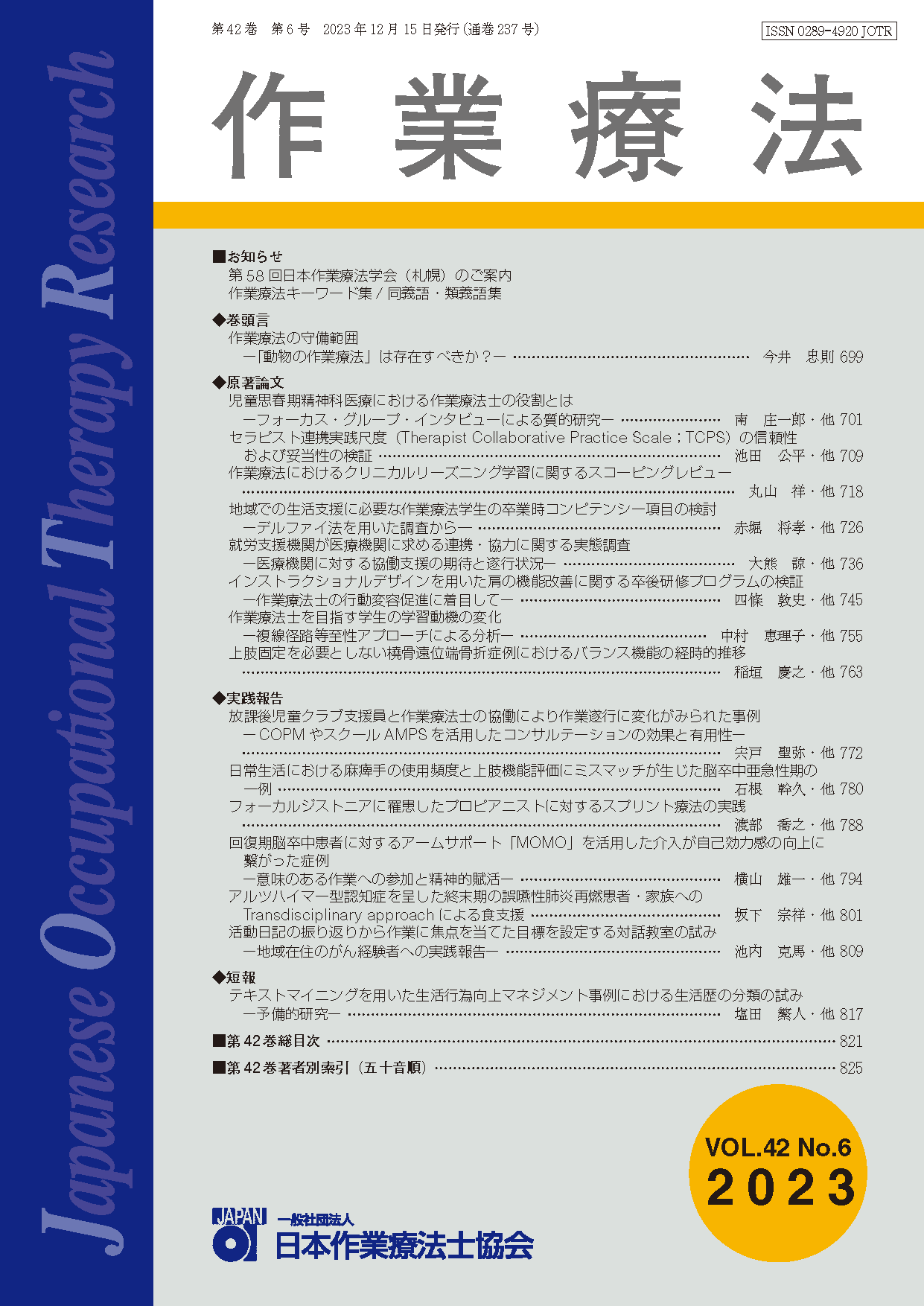Volume 42, Issue 6
Displaying 1-18 of 18 articles from this issue
- |<
- <
- 1
- >
- >|
FOREWORD
-
2023Volume 42Issue 6 Pages 699
Published: December 15, 2023
Released on J-STAGE: December 15, 2023
Download PDF (208K)
ORIGINAL ARTICLES
-
2023Volume 42Issue 6 Pages 701-708
Published: December 15, 2023
Released on J-STAGE: December 15, 2023
Download PDF (633K) -
2023Volume 42Issue 6 Pages 709-717
Published: December 15, 2023
Released on J-STAGE: December 15, 2023
Download PDF (481K) -
2023Volume 42Issue 6 Pages 718-725
Published: December 15, 2023
Released on J-STAGE: December 15, 2023
Download PDF (489K) -
2023Volume 42Issue 6 Pages 726-735
Published: December 15, 2023
Released on J-STAGE: December 15, 2023
Download PDF (627K) -
2023Volume 42Issue 6 Pages 736-744
Published: December 15, 2023
Released on J-STAGE: December 15, 2023
Download PDF (510K) -
2023Volume 42Issue 6 Pages 745-754
Published: December 15, 2023
Released on J-STAGE: December 15, 2023
Download PDF (655K) -
2023Volume 42Issue 6 Pages 755-762
Published: December 15, 2023
Released on J-STAGE: December 15, 2023
Download PDF (725K) -
2023Volume 42Issue 6 Pages 763-771
Published: December 15, 2023
Released on J-STAGE: December 15, 2023
Download PDF (624K)
PRACTICAL REPORTS
-
2023Volume 42Issue 6 Pages 772-779
Published: December 15, 2023
Released on J-STAGE: December 15, 2023
Download PDF (549K) -
2023Volume 42Issue 6 Pages 780-787
Published: December 15, 2023
Released on J-STAGE: December 15, 2023
Download PDF (831K) -
2023Volume 42Issue 6 Pages 788-793
Published: December 15, 2023
Released on J-STAGE: December 15, 2023
Download PDF (1069K) -
2023Volume 42Issue 6 Pages 794-800
Published: December 15, 2023
Released on J-STAGE: December 15, 2023
Download PDF (617K) -
2023Volume 42Issue 6 Pages 801-808
Published: December 15, 2023
Released on J-STAGE: December 15, 2023
Download PDF (666K) -
2023Volume 42Issue 6 Pages 809-816
Published: December 15, 2023
Released on J-STAGE: December 15, 2023
Download PDF (586K)
SHORT REPORT
-
2023Volume 42Issue 6 Pages 817-820
Published: December 15, 2023
Released on J-STAGE: December 15, 2023
Download PDF (431K)
COMPLETE CONTENTS OF VOL. 42
-
2023Volume 42Issue 6 Pages 821-824
Published: December 15, 2023
Released on J-STAGE: December 15, 2023
Download PDF (360K)
INDEX OF AUTHORS OF VOL. 42
-
2023Volume 42Issue 6 Pages 825-830
Published: December 15, 2023
Released on J-STAGE: December 15, 2023
Download PDF (461K)
- |<
- <
- 1
- >
- >|
